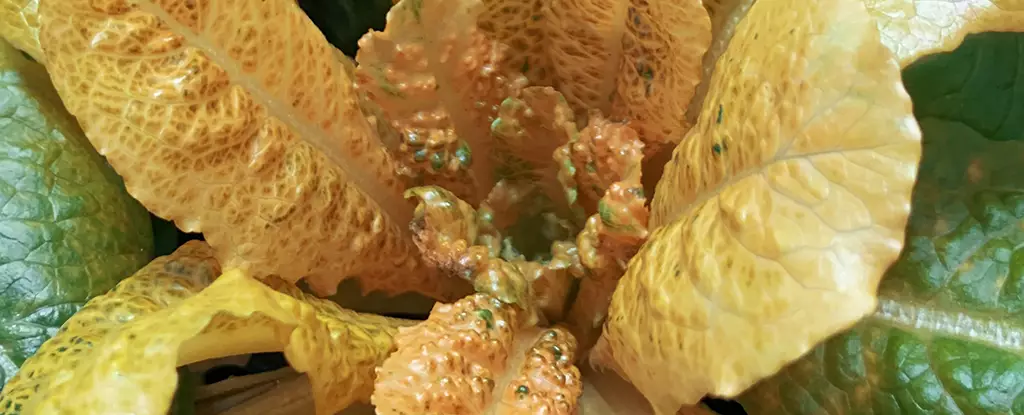In a groundbreaking advancement, scientists have successfully developed a genetically modified variety of lettuce, dubbed ‘golden lettuce’, rich in beta-carotene—a precursor to vitamin A. This innovation, pioneered by a team from Valencia Polytechnic University (UPV) in Spain, holds promise not only for improving nutritional outcomes but also for enhancing the health benefits of various vegetables in the future. Vitamin A is crucial for numerous body functions, including immune response, vision, and growth, and the golden lettuce represents a significant step toward combating widespread vitamin A deficiencies that affect hundreds of millions worldwide.
The task of bioengineering lettuce to augment its beta-carotene content was far from straightforward. Traditionally, carotenoids like beta-carotene are concentrated in the chloroplasts—the plant cells’ organelles responsible for photosynthesis. Increasing their levels here poses a risk; an excessive accumulation could disrupt the plant’s vital photosynthetic processes, ultimately leading to cellular death. To navigate this obstacle, the researchers adopted a novel approach that involved storing beta-carotene in atypical regions of the plant, thus sidestepping the delicate balance of the chloroplasts.
As explained by molecular biologist Manuel Rodríguez Concepción, “Optimizing beta-carotene levels without compromising chloroplast functionality was essential; excessive production can jeopardize the plant’s survival.” This highlights the delicate equilibrium that scientists must maintain when altering fundamental biological processes within an organism.
The team employed advanced biotechnological techniques to facilitate beta-carotene accumulation outside of the chloroplasts. By introducing the gene for the bacterial enzyme crtB, they transformed some chloroplasts into chromoplasts—cells that serve as pigment storage units—while also implementing high-intensity light conditions to stimulate additional storage structures known as plastoglobules. Collectively, these methods not only boosted protein yield but also improved the bioavailability of beta-carotene in the lettuce.
Molecular biologist Luca Morelli articulated the significance of these advancements: “Enhancing both the accumulation and bioaccessibility of beta-carotene enriches the lettuce nutritionally. This means that more of the beneficial compound is available for absorption in the intestines, where it transforms into the essential vitamin A.”
The Potential Impact on Global Nutrition
The implications of this research extend far beyond the laboratory. In 2023, a study indicated that vitamin A deficiency remains a pressing health issue, particularly among populations in low-income countries where dietary variety is limited. By genetically modifying staple crops like lettuce to enhance their nutritional profile, scientists could provide a straightforward solution to uplift the diets of millions, considerably reducing the health risks associated with nutrient deficiencies.
This innovative avenue of agricultural research is particularly pertinent given the steady increase in global population and the corresponding demand for more nutritious food sources. If successful, the techniques employed in creating golden lettuce can be adapted for other crops, potentially transforming the nutritional landscape of countless vegetables.
As we move forward, the methods utilized in developing golden lettuce highlight the potential synergy between biotechnology and traditional agriculture. By leveraging genetic modification responsibly, we can create varieties of common vegetables that not only taste good but are also fortified with vital nutrients.
The journey does not end with golden lettuce; it marks the beginning of a broader exploration into enhancing the nutritional content of our food systems. The possibility of reengineering various crops to address specific deficiencies illustrates the promise of innovative agricultural practices in promoting public health. As global attention focuses on sustainable food production and nutrition security, developments like golden lettuce stand at the forefront of efforts to nourish the future intelligently and sustainably.

